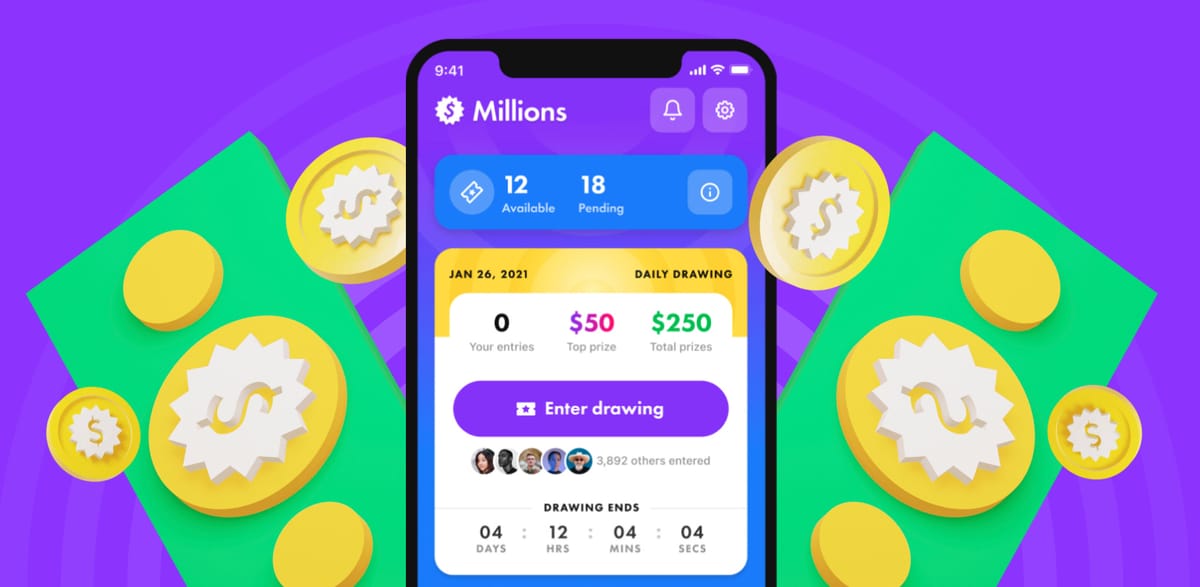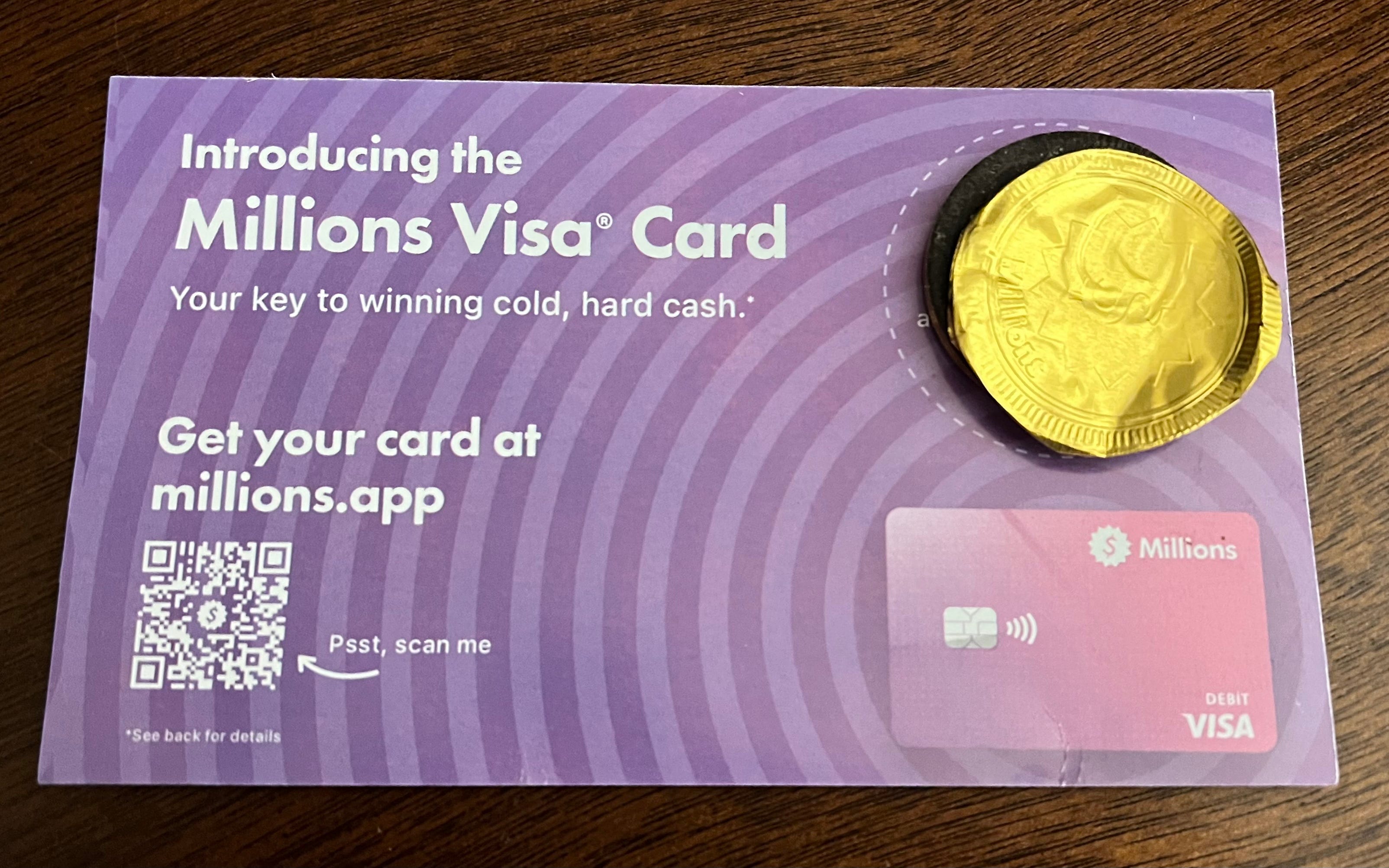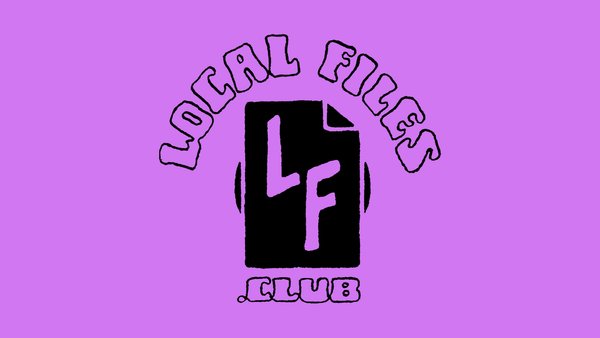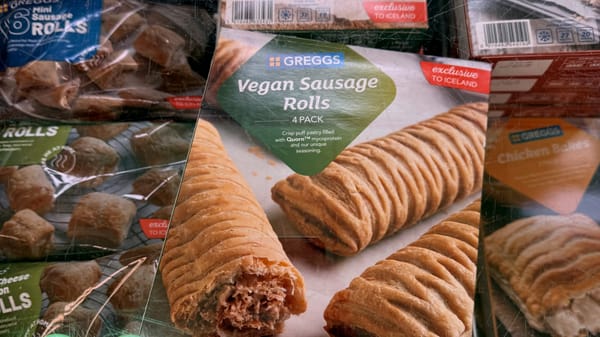The Millions Visa Card turns your bank account into a lottery
Which is dumb as hell.

Earlier this year, a new startup called Millions emerged with an intriguing deal: follow them on Twitter, and be entered into a lottery to win $1 million. There was no product to buy or service to subscribe to. What Millions did have is a lot of cash from big-name investors, and they wanted to redistribute the wealth. (I tried my luck and, unfortunately, did not win $1 million.)
Later, Millions launched a new project called GoldorChocolate. Again, a simple premise: in exchange for your physical mailing address, Millions would send you an envelope with either a chocolate coin or a solid gold one. (My fiancée tried her luck and, unfortunately, did not win a gold coin.)
Now, Millions is back with an actual product: a debit card that earns you raffle tickets every time you swipe.

Unlike a more traditional bank account, there’s no way to earn interest (not that most checking accounts earn you much, if any, interest). And unlike a credit card, you don’t get more points the more you spend—as of right now, you earn one raffle ticket per swipe, no matter how big the transaction is.
Millions customers can then use their raffle tickets to enter drawings, which seem straightforward enough: each ticket has an equal chance of being drawn, and you can enter multiple tickets. If you and 100 other people each enter a single ticket, you have a 1 in 101 chance of winning. If you put in 100 tickets and 100 other people each enter a single ticket, you have a 1 in 2 chance of winning.
How much can you actually win? Unclear—according to the Millions website, “thousands of dollars in cash and prizes” are up for grabs in their drawings, though how much they’re actually giving out daily is unclear. The website shows a screenshot of a daily drawing where a total of $250 is available. However, that $250 is made up of individual prizes, with the top prize being $50.
I’ll admit—$50 is pretty appealing, especially as I look at my bank statement today and learn that I earned a total of $0.88 in interest this month. Of course, if Millions has its way, it will soon have millions of customers, and your chances of ever winning a raffle will dwindle. And I’ll still be collecting my 88 cents.
In a way, the Millions bank account is not unlike a Ponzi scheme: early users will have high chances of winning money, proselytize the service to friends and family, and help Millions grow a user base while they still give out the same paltry amount of cash. Plus, the more users Millions has, the more money they’ll earn from debit card transaction fees, which they earn every time someone swipes their card to earn a raffle ticket.
At a certain point, Millions will be spending less on these raffles than they would if they gave out a traditional interest rate. If you’re lucky enough to earn interest on your checking account, the interest rate probably sucks, but when a bank has billions of dollars in deposits, even paying out a shitty interest rate on a small percentage of their held cash means they’re paying out millions of dollars per year to customers. Millions, meanwhile, giving out $250 per day on the low end, would be paying out less than $100,000 per year to its customers. And even if they decide to increase their raffle prizes, that amount doesn’t have to scale along with their customer base like paying out interest would.
Millions appears to be tapping into a pervasive economic anxiety and belief that the traditional financial rules—work 40 hours per week, save a little, buy a house, send your kids to college, retire to Florida—no longer apply. It’s the same economic anxiety that drove people to invest in Gamestop earlier this year, and that drives people towards Bitcoin and Ethereum and NFTs. Why would you put your hard-earned cash in a long-term savings vehicle when you don’t know if the world, let alone the economy, is going to be here in 10 years?
I don’t disagree that it’s hard to imagine much of a future (unless you’re in the top 1% of the 1% and already have your underground bunker in New Zealand mapped out), and I don’t think traditional banks have our best interests at heart. But I also don’t think the answer is to just throw up our hands and let a bunch of white dudes in Silicon Valley turn our bank accounts into literal lotteries.
Anyway, here’s my referral link.




